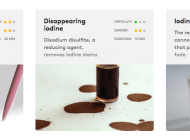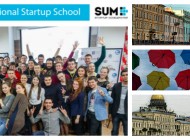In 2003, a recent MBA grad, bright-eyed and bushy-tailed, I was implementing my business plan which I developed during the entrepreneurship course at London Business School.
GoalEurope was set up to offer outsourcing advice to western companies looking for software development outsourcing in eastern Europe. I have signed up a number of companies to be in my supplier network. One of them was NTR Lab whose cofounder and CEO Nick Mikhailovky told me all sorts of interesting stories about neutral networks when I first met him in his office in Moscow in 2003.
In the recent years, most owners of outsourcing companies in my emerging supplier network swapped outsourcing for innovation. This year, Alex Freedland, the owner of Mirantis, became an investor in AGroup from Latvia; and Alexander Snurnitsin, Mirantis’ managing director in Russia is now its CEO (more here). Our supplier, Sciant from Bulgaria, was sold to VMware. Steve Keil, its former Australian-born CEO is a founder of a startup in a stealth mode. The owner of Afortio Vlad Voskresensky is now running a successful software company Invisible CRM (we wrote about it here), while Anatoly Gaverdovsky is putting his weight behind yaM Labs (more here) after selling Vested Development to EPAM.
A couple of years ago, Nick too, has entered the innovation scene. Instead of selling NTR Lab, he added new companies to his portfolio which now include Web-Praktika, a web design and development company; and Sinergo, a system integrator, both focused on the Russian market. His best known innovative venture, however, is POIdo, a tool allowing its users to get discounts which are advertised on their mobile devices.
Sounds like a location-based-advertisement, hyped-up in the beginning of the millenium has become a reality. The idea of the business is simple, and simple is beautiful. You walk around town and your iPhone calls out alluringly, “go left, get a burger at a half price”, “go right, buy a pair of Manolo Blahniks at 30% discount”, “go straight and….” Variations are endless. POIdo is perfect for showing them. It works on mobile phones as well as other mobile devices such as satellite navigation systems. “Not so quick,” says Nick.
Business models around ad selling are rather few and far in between. Unlike small and medium size companies in the United States, business owners in Russia do not place advertisements directly via the internet. “To get a local shop to place an ad with us, we should physically come to them,” says Nick. The investment in direct selling of advertisement space to small business owners is too large compared to the commission the company can earn placing them.
Nick have first tried to address the US market but was outperformed by two American competitors. All three businesses were launched in March 2009 but Americans knew better how to market in the United States. “Even though we had a superior technology, we knew less about selling advertisement in the US while our competitors built their sales channels fairly quickly,” admits Nick, emphasizing the importance of industry-specific expertise in a success of a technology startup.
However, Nick soon realized a necessity to reanalyse the business model. So now, POIdo focuses on Russian market and works with large advertisers and ad agencies, placing advertisements for their corporate clients such as fast food chains and gas stations which generates significantly higher returns. The company so far is the leader in the field of location-based advertising in Russia, outperforming the closest competitor by order of magnitude.












